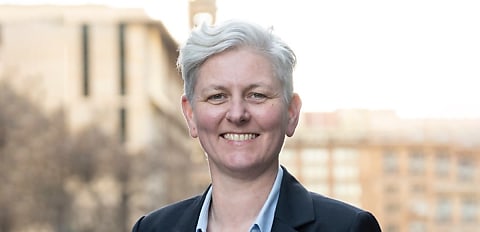The Westpac-Melbourne Institute Consumer Sentiment Index declined 0.7 per cent to 92.1 in January, from 92.8 in December, marking the second month in a row of dwindling sentiment.
According to Westpac chief economist Luci Ellis, consumer mood remains “on the pessimistic side” with survey results being weaker later in the survey period than in the first two days.
However, Ellis said that sentiment is still less negative when compared to the same period last year, with some components of the survey suggesting that consumers “expect things to continue to improve from here”.
Meanwhile, sentiments around interest rate expectations remained largely unchanged from December to January, with the index dropping slightly from 105.8 to 105.7, and was the fourth consecutive month, where the share of respondents expecting another rate increase outnumbered those who expect rates to fall by 5 percentage points or less.
Home owners with a mortgage were more likely to expect interest rate cuts than either outright owners or renters.
“While the share of mortgagors expecting a cut has exceeded that of renters for more than a year, the increase this month has put them ahead of outright owners as well,” Ellis said.
“This shift in expectations may help explain why sentiment more broadly has improved for this group relative to both renters and outright owners.”
She said that most consumers are expecting rates to fall by no more than 1 per cent over the next 12 months.
Furthermore, consumer sentiment regarding housing improved in January, with the “time to buy a dwelling” index rebounding by around 10 per cent to 89.9, reversing the fall seen in December (81.6).
Ellis said the increase in positive sentiment could reflect a combination of mortgage rate cut expectations along with the recognition that housing prices are slowing or decreasing in most population centres.
However, sentiment towards housing still remains well below the historical average of 120.1.
“The Reserve Bank board next meets on February 17–18. Recent communications indicate that the Board is becoming more confident about returning inflation to the 2–3 per cent target band,” Ellis said.
“However, the latest sentiment survey highlights some of the ‘mixed signals’ still coming from the consumer. In addition, the labour market appeared to stop easing in the second half of 2024.”
She said that there is “still a chance” that the RBA will decide to move interest rates during the February or April monetary policy meetings in the event that inflation returns below expectations for the December quarter.
Although, on balance, Westpac still expects the central bank to leave interest rates unchanged at 4.35 per cent until the commencement of the easing cycle in May.
[RELATED: Major bank shifts cash rate and inflation forecast]

